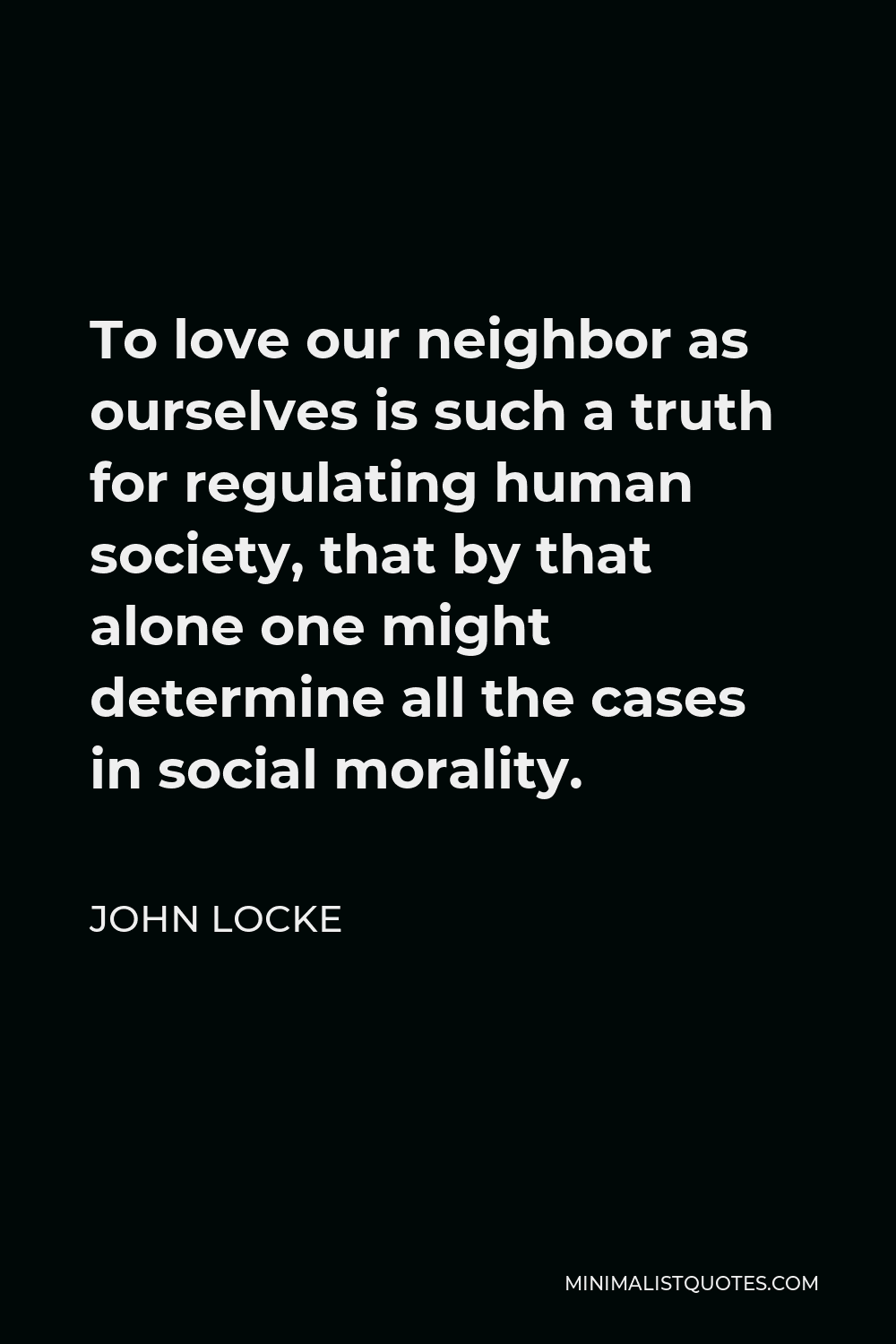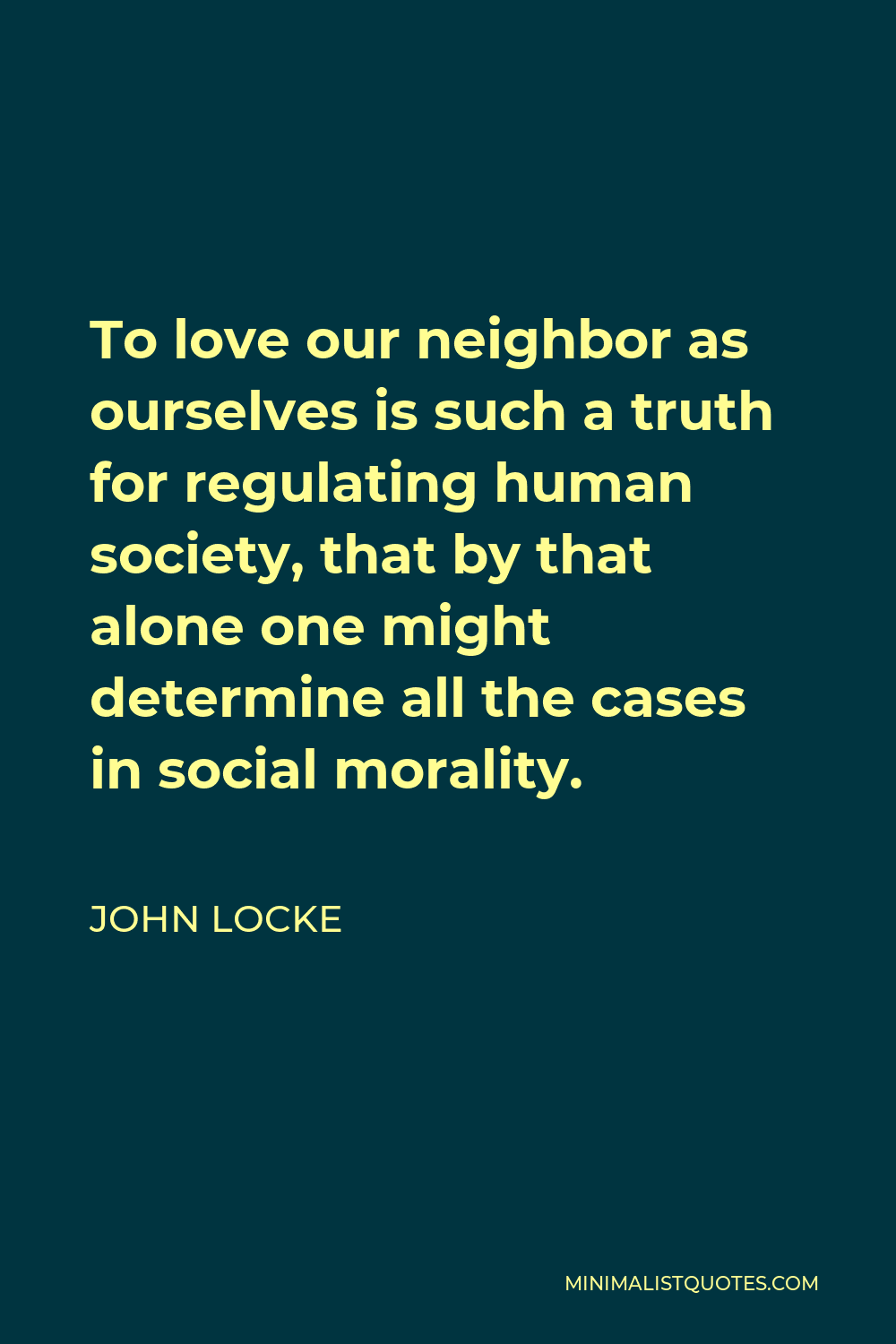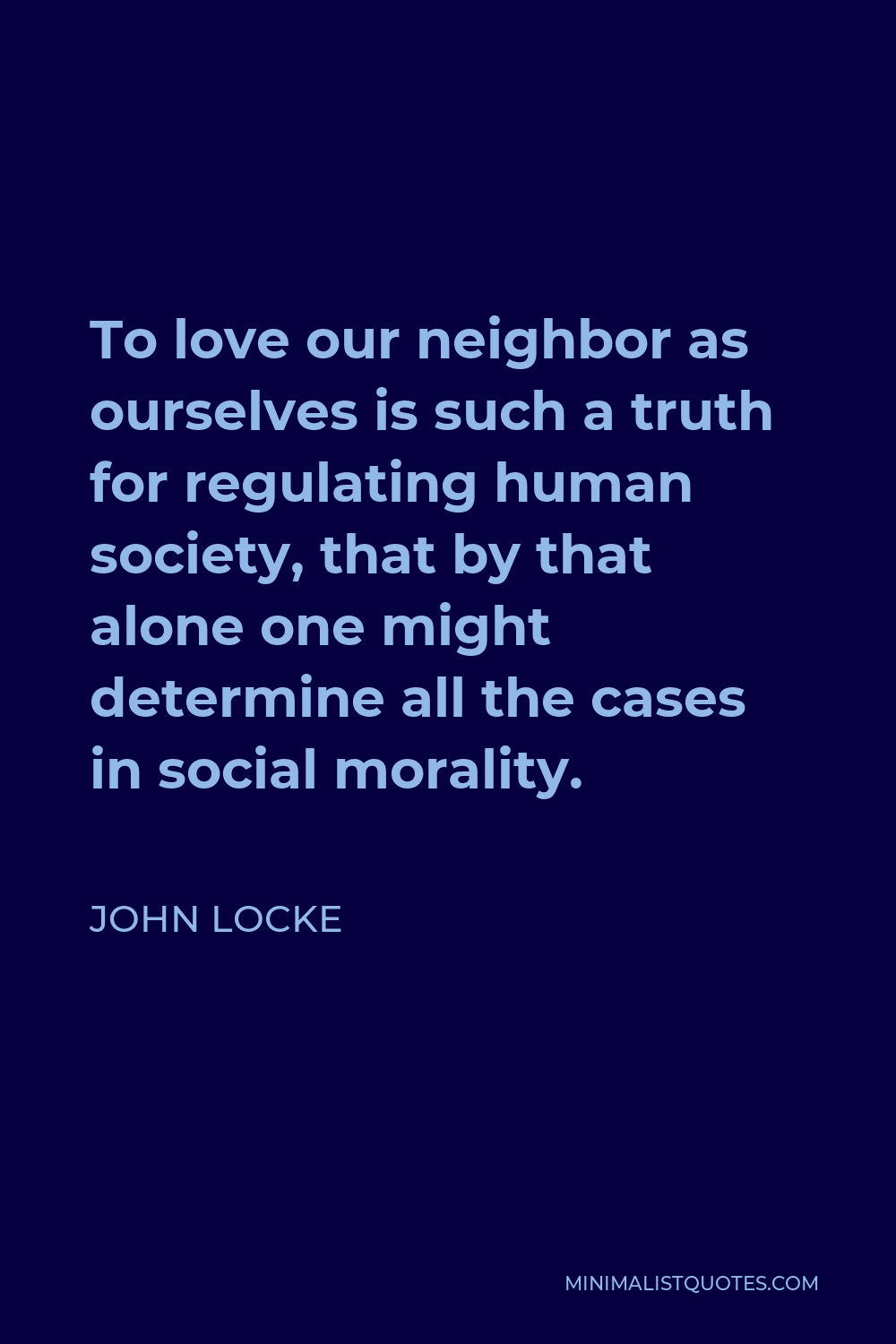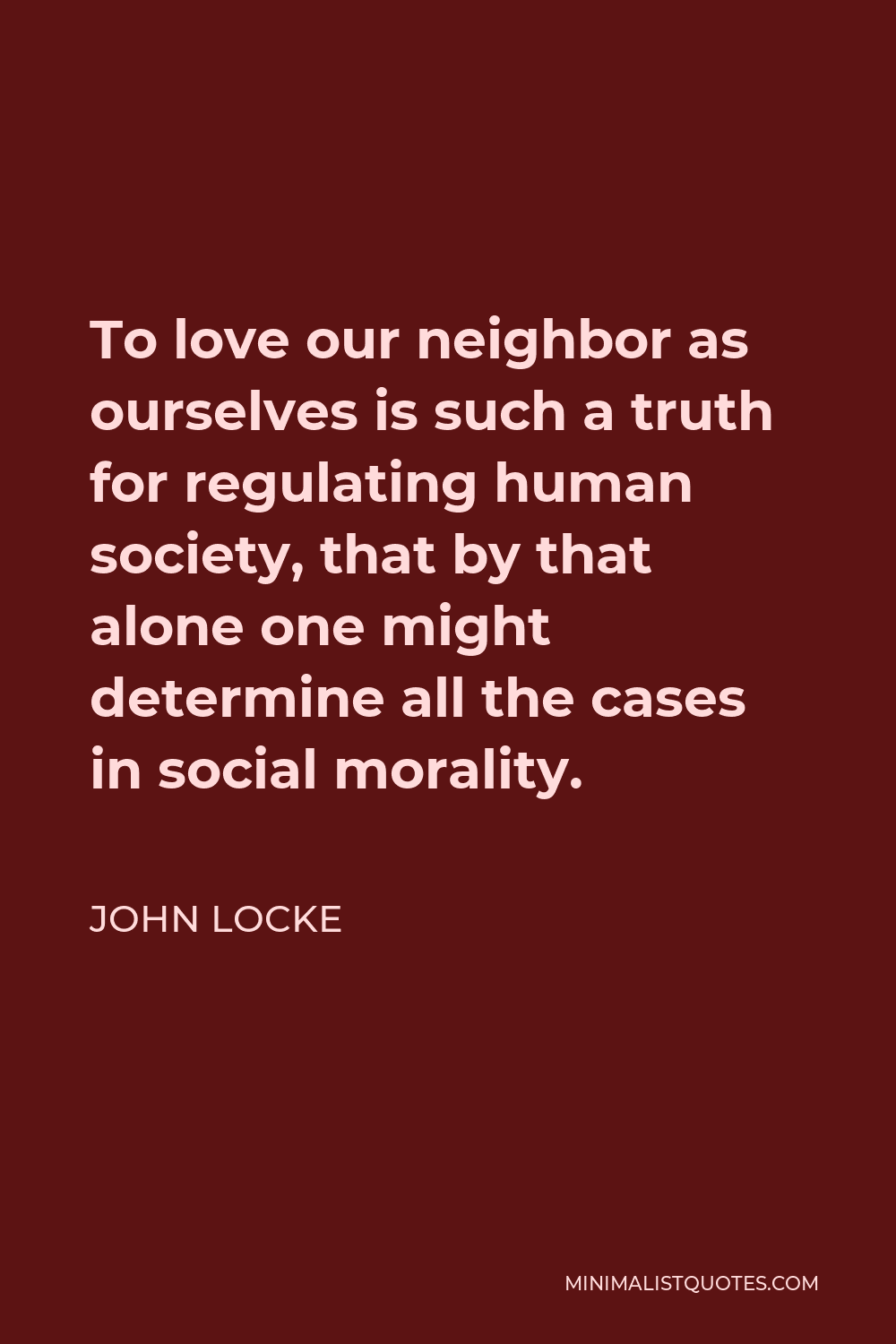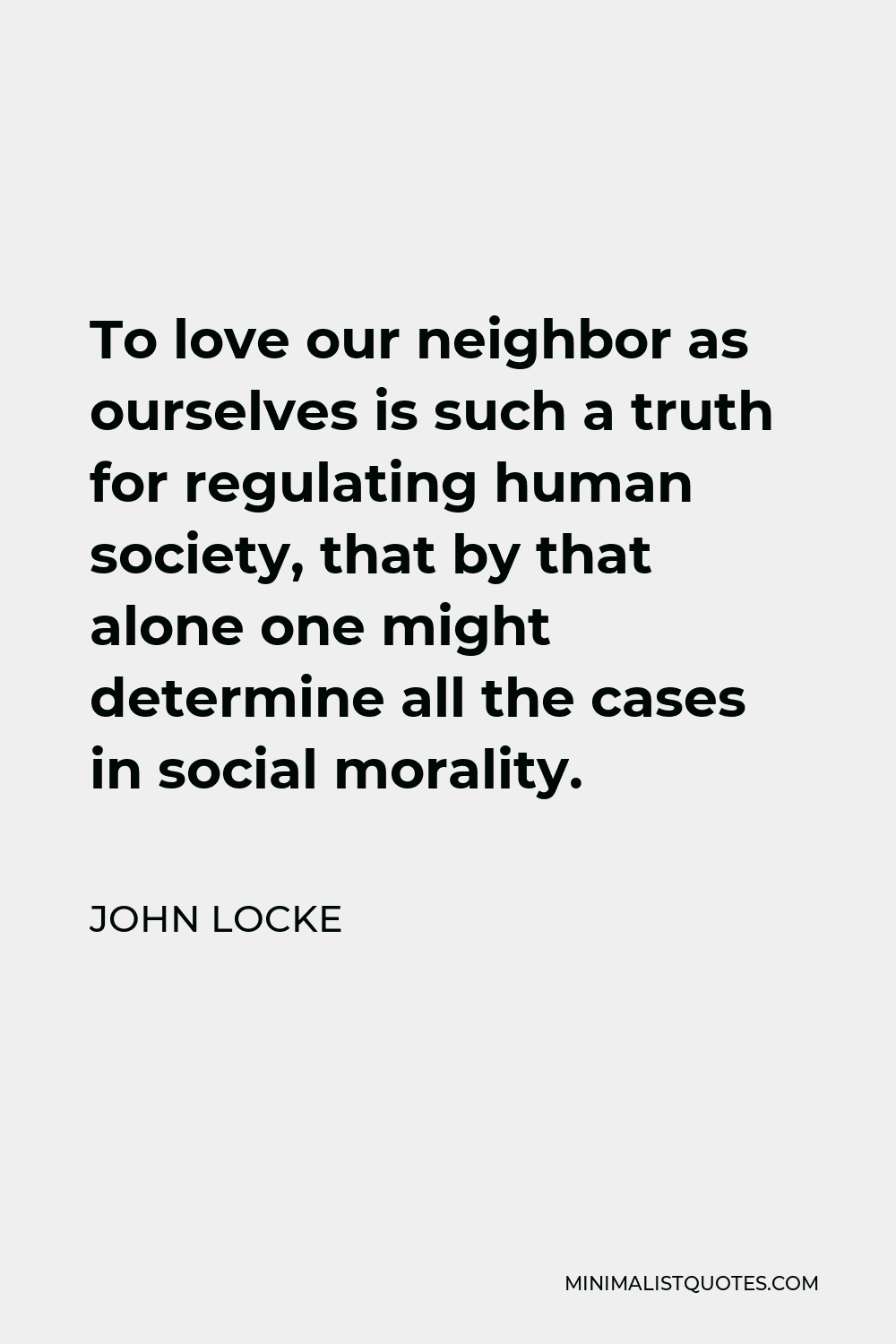[Individuals] have a right to defend themselves and recover by force what by unlawful force is taken from them.
JOHN LOCKETo love our neighbor as ourselves is such a truth for regulating human society, that by that alone one might determine all the cases in social morality.
More John Locke Quotes
-





![John Locke Quote - [Individuals] have a right to defend themselves and recover by force what by unlawful force is taken from them.](https://minimalistquotes.com/wp-content/uploads/2023/03/individuals-have-a-right-to-defend-themselves-and--683x1024.jpg)

-







If you punish him for what he sees you practise yourself, he… will be apt to interpret it the peevishness and arbitrary imperiousness of a father, who, without any ground for it, would deny his son the liberty and pleasure he takes himself.
JOHN LOCKE -






If all be a Dream, then he doth but dream that he makes the Question; and so it is not much matter that a waking Man should answer him.
JOHN LOCKE -






To be rational is so glorious a thing, that two-legged creatures generally content themselves with the title.
JOHN LOCKE -






A sound mind in a sound body is a short but full description of a happy state in this world.
JOHN LOCKE -






Truth certainly would do well enough, if she were once left to shift for herself…She is not taught by laws, nor has she any need of force, to procure her entrance into the minds of men.
JOHN LOCKE -






Curiosity in children, is but an appetite for knowledge. The great reason why children abandon themselves wholly to silly pursuits and trifle away their time insipidly is, because they find their curiosity balked, and their inquiries neglected.
JOHN LOCKE -







A criminal who, having renounced reason … hath, by the unjust violence and slaughter he hath committed upon one, declared war against all mankind, and therefore may be destroyed as a lion or tiger, one of those wild savage beasts with whom men can have no society nor security.
JOHN LOCKE -





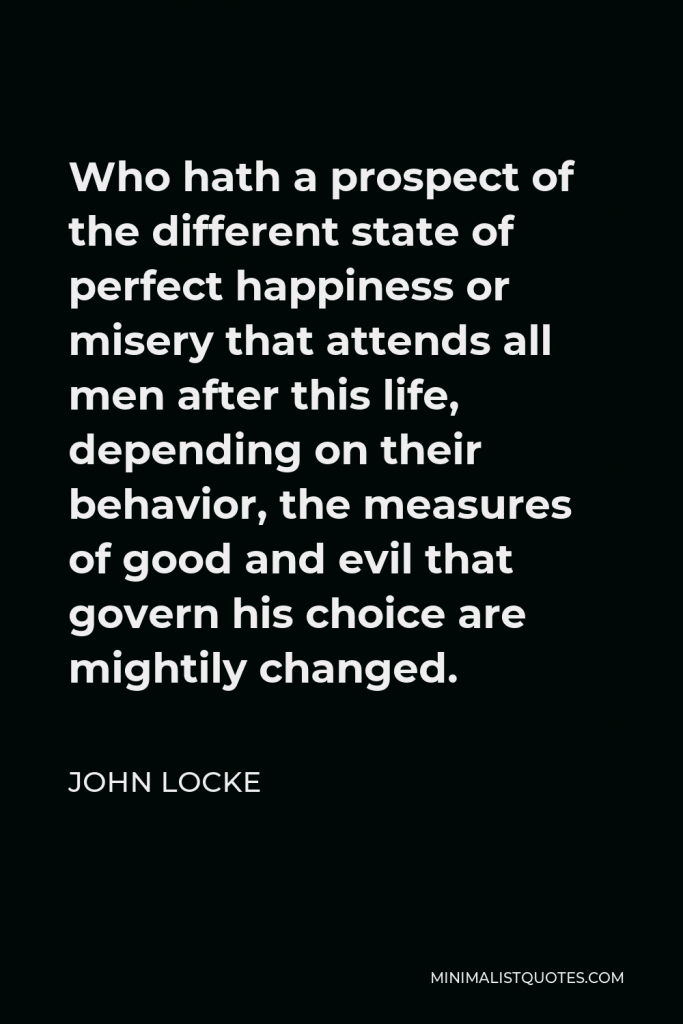

Who hath a prospect of the different state of perfect happiness or misery that attends all men after this life, depending on their behavior, the measures of good and evil that govern his choice are mightily changed.
JOHN LOCKE -







Since the great foundation of fear is pain, the way to harden and fortify children against fear and danger is to accustom them to suffer pain.
JOHN LOCKE -





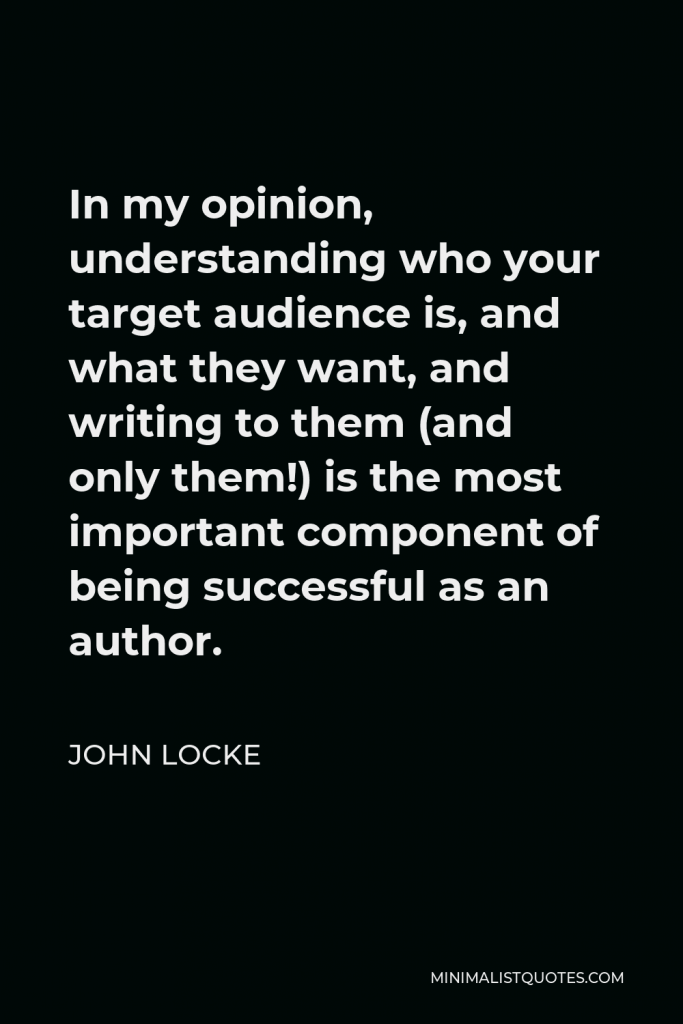

In my opinion, understanding who your target audience is, and what they want, and writing to them (and only them!) is the most important component of being successful as an author.
JOHN LOCKE -






That which parents should take care of… is to distinguish between the wants of fancy, and those of nature.
JOHN LOCKE -





![John Locke Quote - [H]e that thinks absolute power purifies men’s blood, and corrects the baseness of human nature, need read the history of this, or any other age, to be convinced to the contrary.](https://minimalistquotes.com/wp-content/uploads/2023/03/he-that-thinks-absolute-power-purifies-mens-blood--683x1024.jpg)

[H]e that thinks absolute power purifies men’s blood, and corrects the baseness of human nature, need read the history of this, or any other age, to be convinced to the contrary.
JOHN LOCKE -





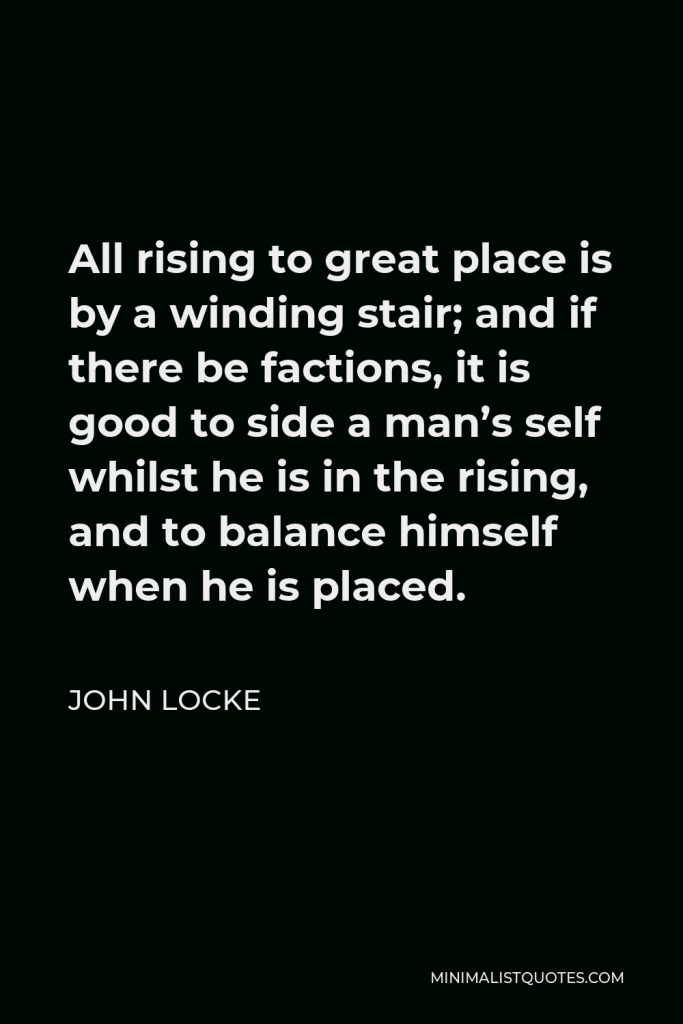

All rising to great place is by a winding stair; and if there be factions, it is good to side a man’s self whilst he is in the rising, and to balance himself when he is placed.
JOHN LOCKE -






He that will have his son have respect for him and his orders, must himself have a great reverence for his son.
JOHN LOCKE -







Any one reflecting upon the thought he has of the delight, which any present or absent thing is apt to produce in him, has the idea we call love.
JOHN LOCKE
